I ran 43 miles to celebrate Women's History Week
Not your average 'celebration', but a rewarding one nonetheless
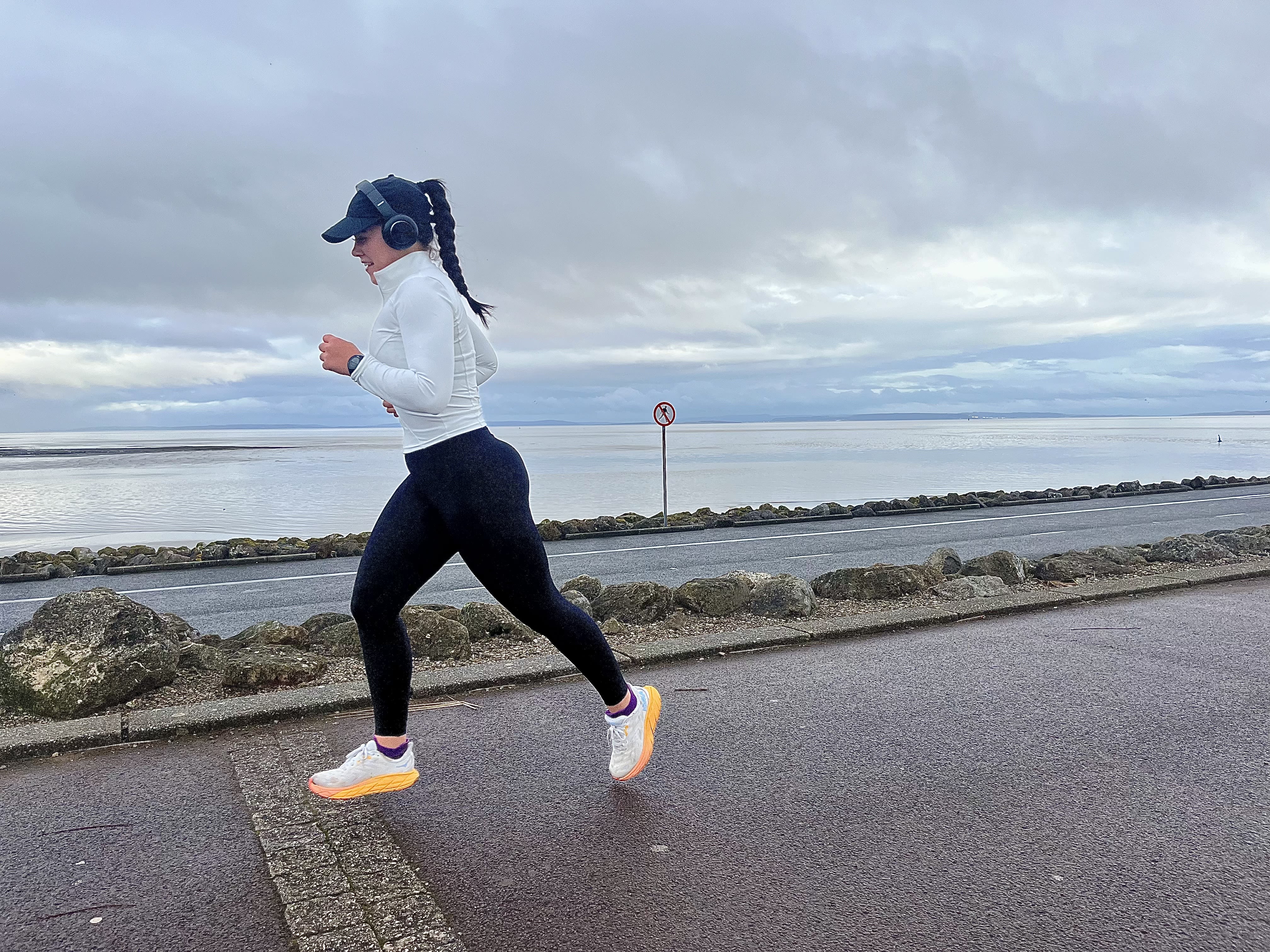
Being accepted in the running landscape has been much harder than putting one foot in front of the other for women throughout history.
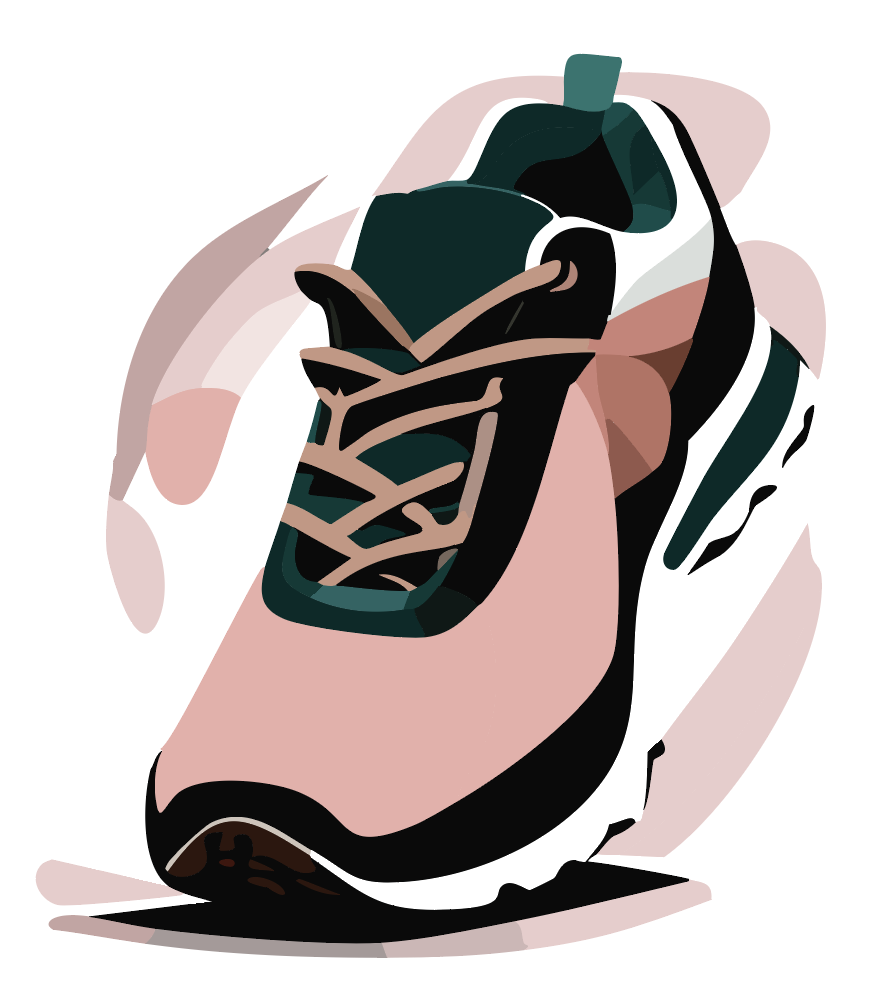
For centuries women runners have faced discrimination in race regulations, training grounds and even public streets. It wasn’t until 1975 that women were given permission to run marathons in the UK, and even now 47% of women runners have told Women’s Running magazine that they have experienced harassment on a run.
Regardless, the history of women’s running shows the grit and determination of our sex. More and more women are lacing up their trainers and hitting the roads. Thanks to our predecessors, we can now reap the benefits of a good run, be it in a competitive race, sociable run club, or solo plod to clear the head.
International Women’s History Week, which takes place the week beginning 8th March, turned 43 years old this month. In honour of the women who broke down barriers in the running landscape, I ran a mile for each year it has been celebrated, and spoke to other runners about the benefits they get from this form of exercise – or better described, in my opinion, as a form of therapy.
"I wanted to push my limits this week"
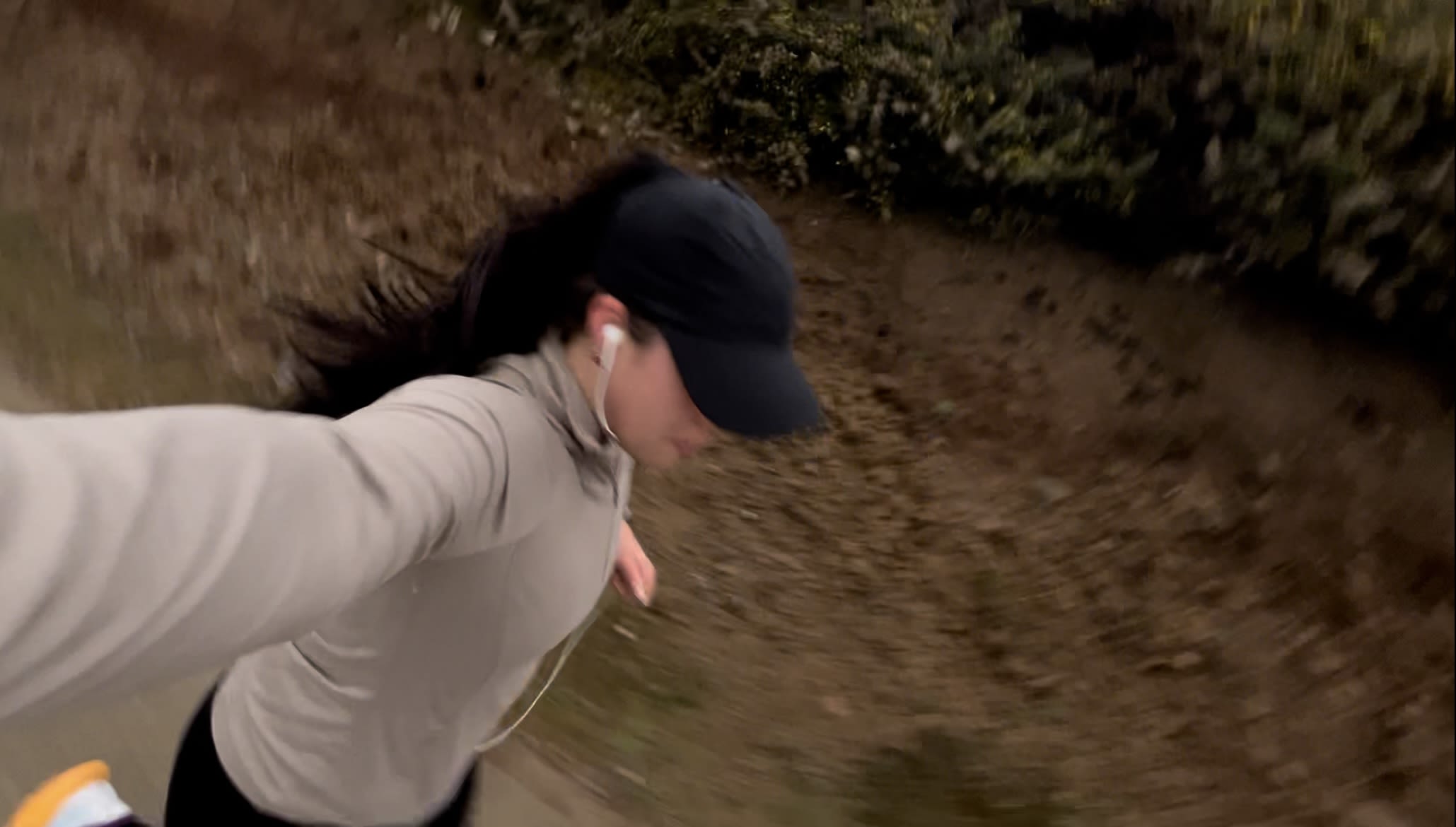
‘Running saved me’
From the well-known runner's high to a sense of purpose, running provides many women with a life line. I spoke to Lauren Green, an online personal trainer, single mum and marathon runner from Cardiff to find out about the benefits she gets from running.
After completing two half marathons, Lauren gave herself four months to train for a full marathon. “I threw myself in the deep end,” she says, and ran said marathon in three hours and 42 minutes. She beat this time at Barcelona marathon this March and is set to run London in April. “It’s a big challenge that I’m working so hard towards, but I love it. It’s given me so much purpose. My whole life revolves around running at the moment, but I’m not complaining. I’ll be like a lost puppy when it’s all over.”
The 38-year-old says that exercise and training her body “saved” her during the hardest time of her life about eight years ago. As a personal trainer who provides clients with live coaching workouts, strength training is Lauren’s job, meaning she can’t “switch off” during these workouts. She must make sure it fits a time frame, count reps and sets, and that she is engaging with her members. So running provides Lauren with a welcome release from this organised routine while still moving her body. “My mind can go anywhere when I’m running,” she says. “I can think about anything and that really helps me. It takes my mind away from work, from home, from family life, from my stresses and struggles.” Considering ONS analysis reveals that men enjoy five hours more leisure time per week than women, the ‘down time’ that running provides women is so important.
90.5% of runners say they run to look after their mental wellbeing
Lauren also puts her mental resilience down to running. She explains: “There’s always a voice in the back of your head saying this is too hard, too challenging. But the more you do it, the more you learn how to defeat that voice and the stronger you become. This helps you overcome obstacles in real life, and you become stronger every day.”
A regular runner myself, I can relate to what Lauren has to say. Once you have pushed yourself physically through a run, you know one of the hardest things you will have to face that day is done. This rang true during my challenge.
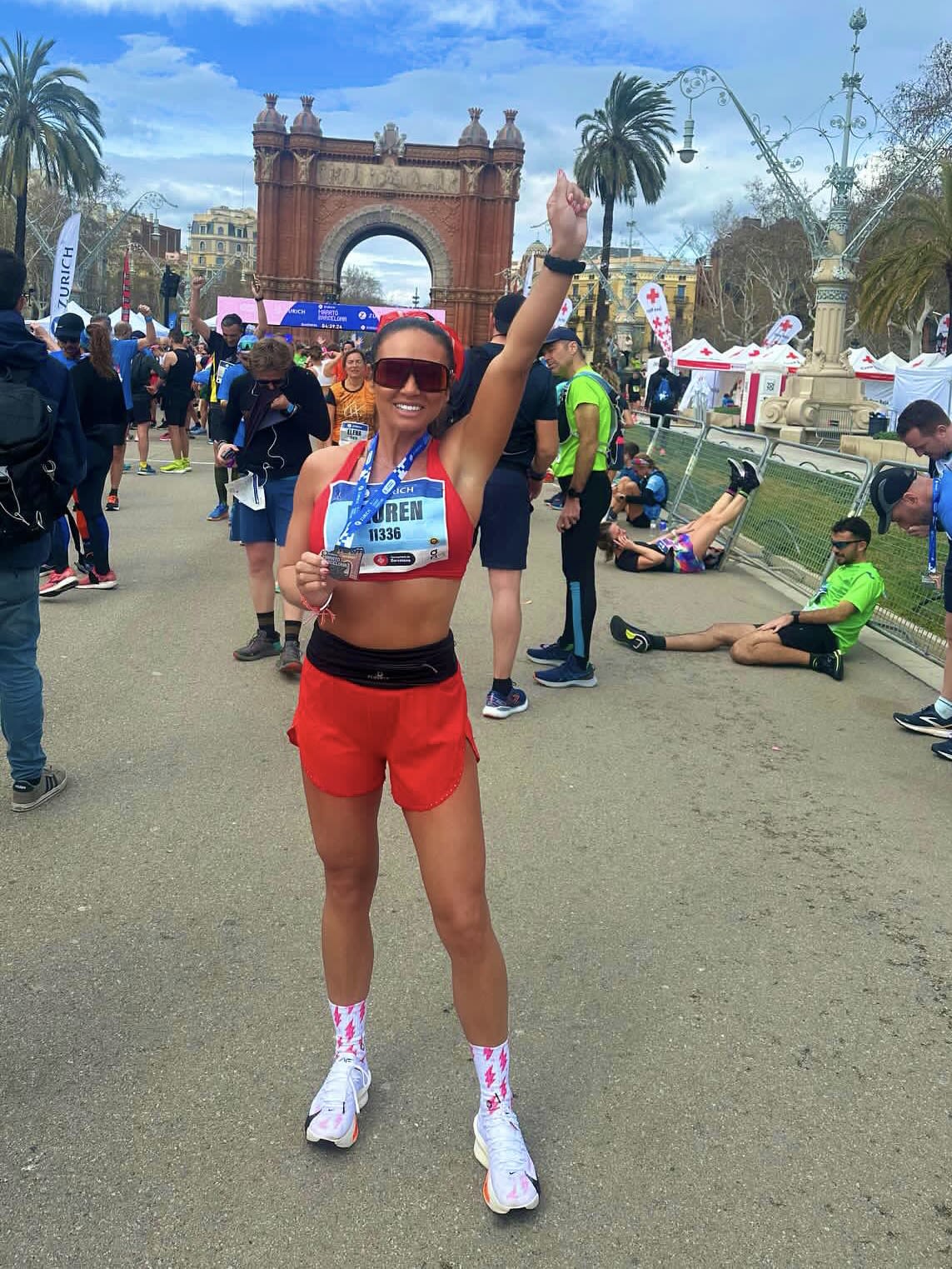
Photo: Lauren Green
Photo: Lauren Green
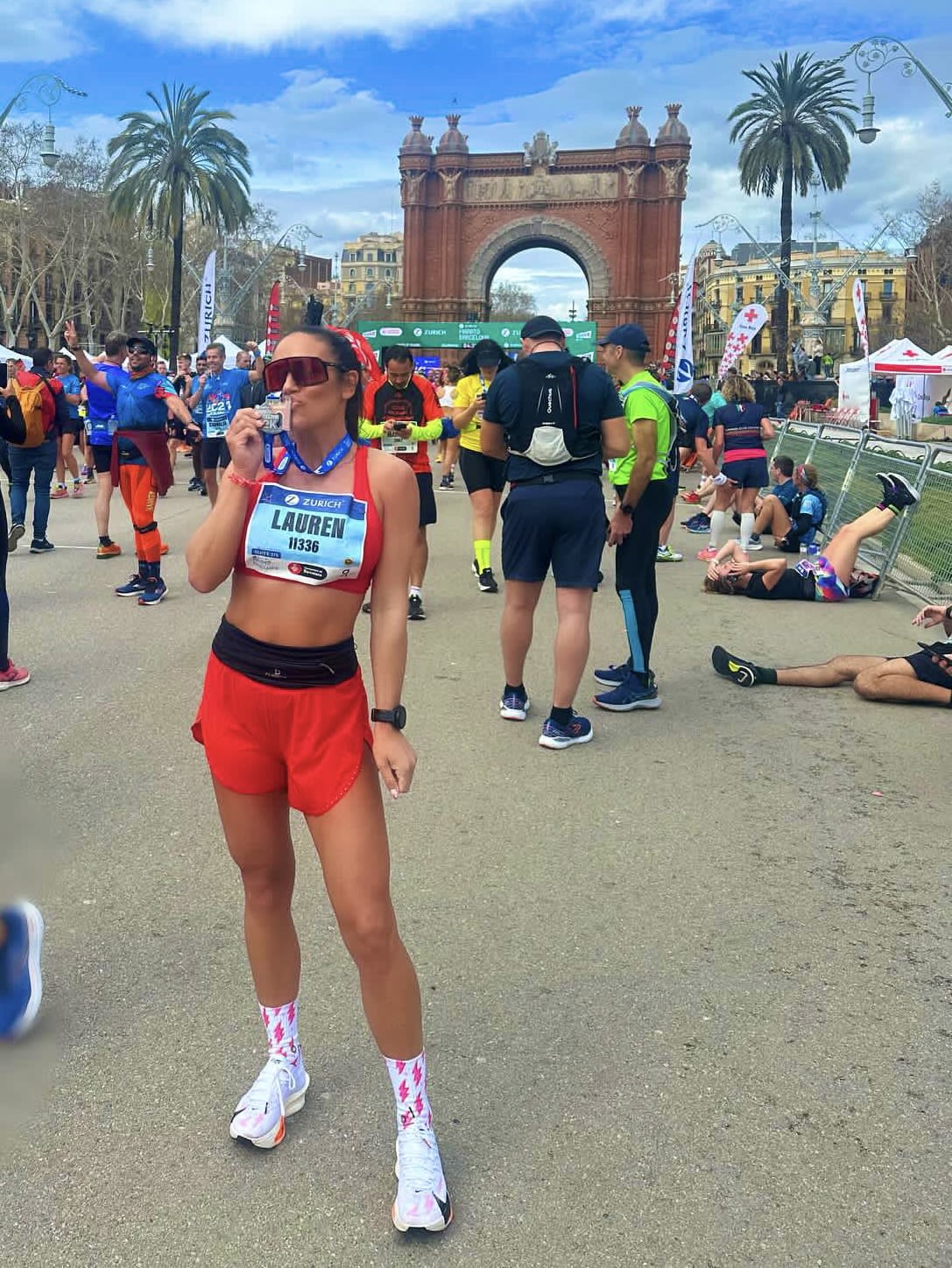
Photo: Lauren Green
Photo: Lauren Green
43 miles, seven days, two tired legs
In celebration of Women’s History Week turning 43-years-old, I ran a mile for each year it has been celebrated. I set out to run 6.2 miles (the equivalent of ten kilometres) every day for a week, with each run representing women whose efforts have formed a legacy in the history of women’s running.
Nearly 60% of 5K participants are women
I surprisingly enjoyed upping my running distance this particular week and felt great, physically and mentally, during it. The challenge made me feel fit, positive and super motivated.
From my regular running routes to coastal hills, and a treadmill run thrown in, here’s how the week went…
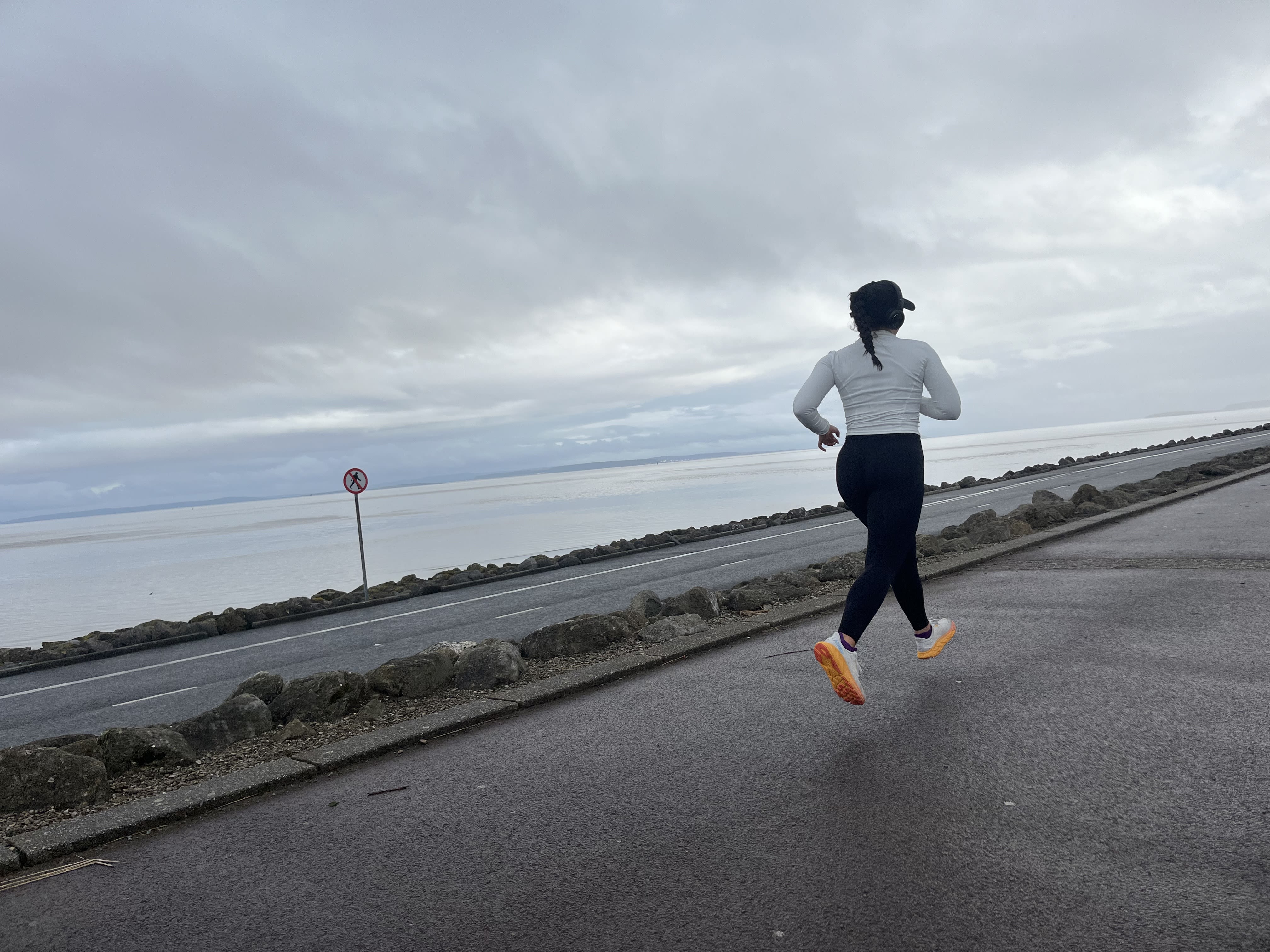
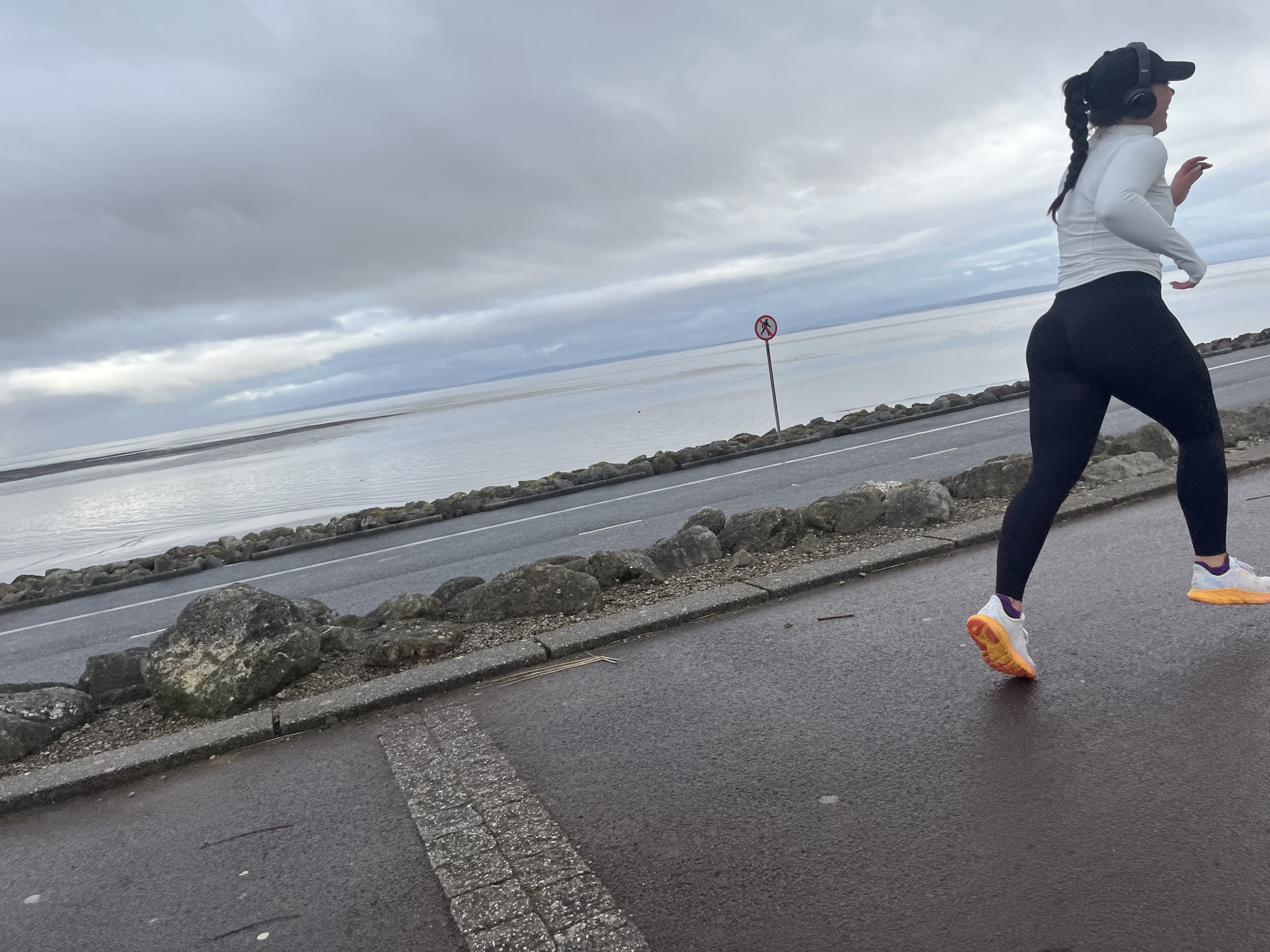
MONDAY
I dedicate this run to the pioneers of women’s marathon running – Frӓulein Melpomene and Stamata Revithi. In 1896 the marathon at Athens’ Olympic Games drew great interest. It was reserved at the time for male participation only, of course. However, there is evidence of these two Greek women running the same course to prove they were as capable of finishing as the men. Astonishingly, Revithi ran the marathon just 17 months after giving birth.
With no excuse in the shadow of this legacy, I got myself out of bed at 6am and started the week strong with six miles along Swansea Bay. I had hopes of catching a nice sunrise, but the Welsh weather had other ideas and it rained for the first half of my run; and the sunrise, it was grey. That said I got off to a speedy start, running some of the fastest miles I had in a while – likely thanks to the weekend of ‘rest’ (if you can call being on a dance floor until 1am rest) I took in preparation for my heavy running week.
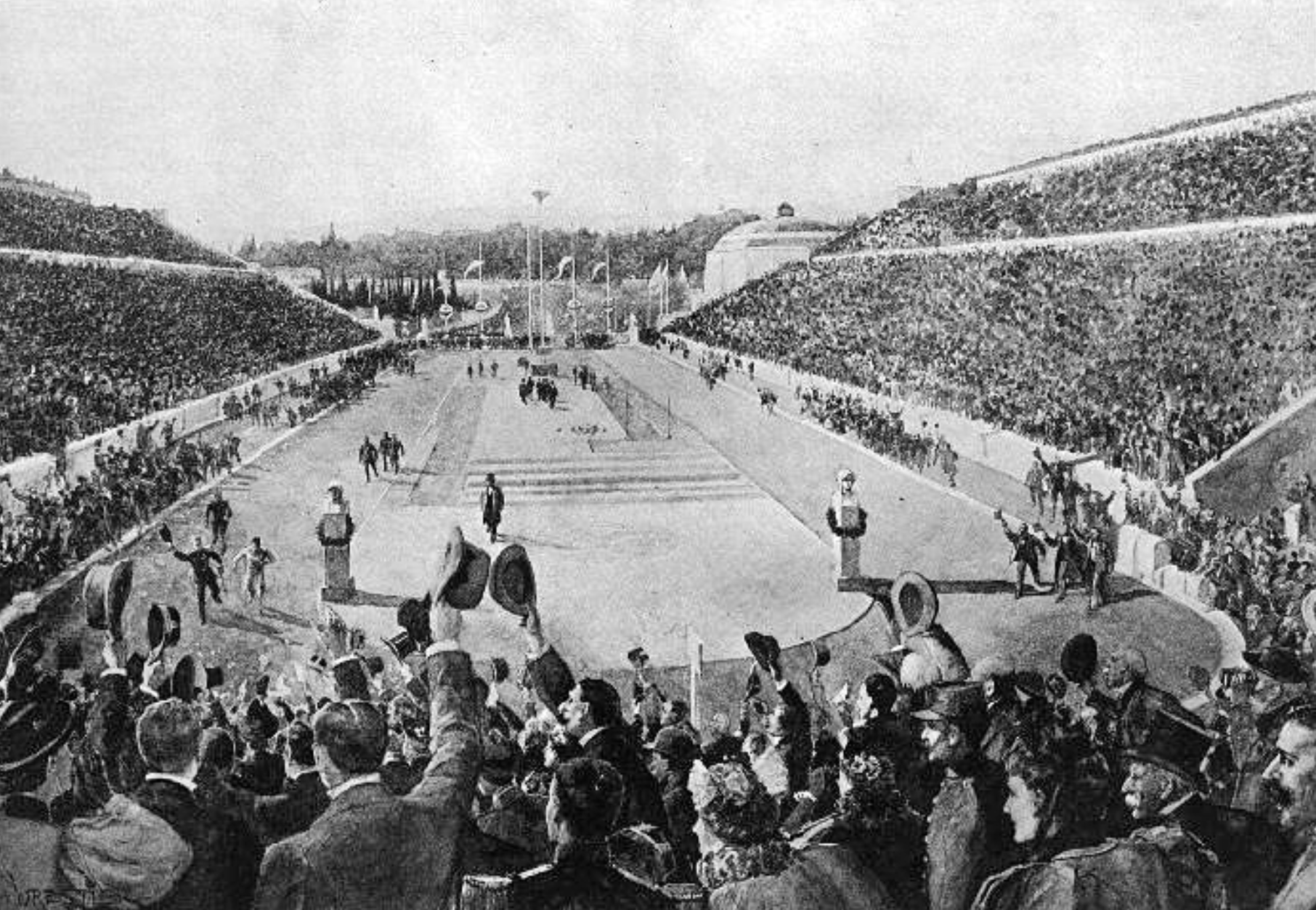
TUESDAY
Bobbi Gibb was the first woman to run (unregistered) the Boston marathon in 1966. Her race application got rejected on the grounds that “women are not physiologically able to run marathon distances.” Defiant, she hid in some bushes close to the start line, waited for half the racers to pass and jumped into the race. Women cheered her on at the finish.
I have always found treadmill running more mentally than physically challenging. Following in the footsteps of Gibb, I wanted to push my limits this week, so I pencilled in a treadmill for my second run, figuring it was best to get it done before motivation dropped.
I knew it was going to be a tough run two minutes in when my Airpods died. Next thing, the TV screen on my treadmill lost signal so I was faced with a black screen or treadmill stats rather than watching the news through subtitles. The solution would have been to switch treadmills but dedicated to the cause (or just a number freak) I didn’t want to restart my run and ‘lose’ the stats I had already tallied up. Luckily the cardio room at my gym has four tv screens overhead so I had some moving image to distract me. In fact, I had a choice between watching Peppa Pig, BBC News (discussing the King’s cancer diagnosis – uplifting), a quiz show, or music videos (thankfully, this was the only TV with sound on). Kisstory played tracks not too dissimilar to my usual running playlist, featuring 2010s hot hits from the likes of Usher, Pitbull and Tinie Tempah. I couldn’t have hit the red stop button any quicker once I reached my planned distance on this run.
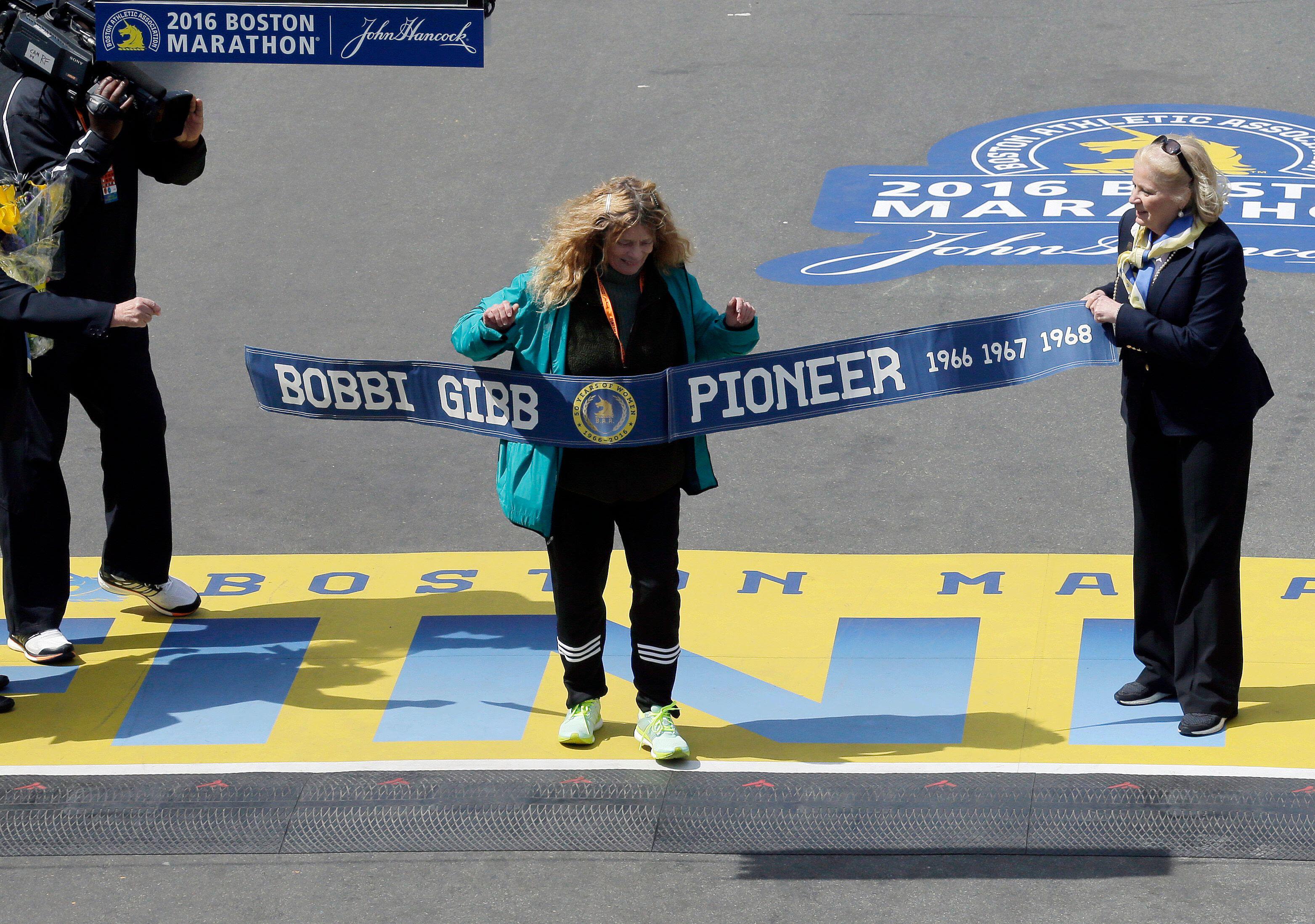
WEDNESDAY
A year after Gibb, Katherine Switzer completed the Boston marathon having registered under the signature KV Switzer, whom the race organisers assumed to be male. Enraged race director Jock Semple realised a woman had entered the race and tried to push her off the course, only to be pushed himself by Switzer’s boyfriend, Tom Miller.
Approximately 9,800 less women than men participated in London Marathon 2023.
I can’t say I wanted to do this run so much that I was willing to engage in a physical fight for it. Nonetheless, I got myself out the door. Wednesday morning saw me running just over six miles along the Gower coast passing three bays on route – Caswell, Langland and Mumbles Pier. Even though I have walked this route many times, I seemed to forget how hilly it was. Up down, up down. I was helped along by scenic views and the motivating atmosphere created by being out in the early hours among dog walkers and cold-water swimmers.
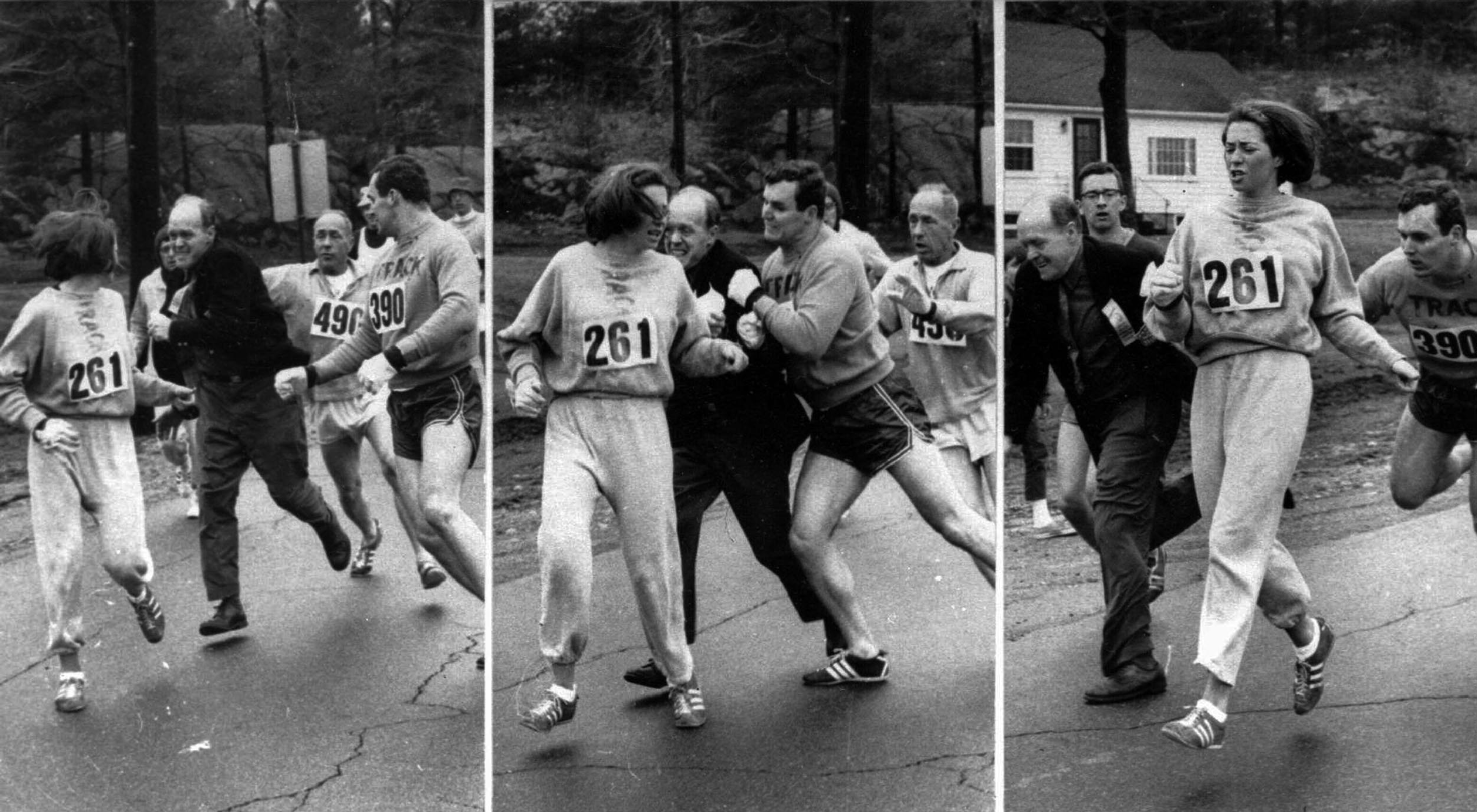
THURSDAY
Known as the barefoot runner, South African Zola Budd’s running career saw controversy and acclaim from breaking the 5,000-metre world record at 17 years old in 1984 to colliding with rival Mary Decker at the Olympics later that year.
The rain hammering on my window when my alarm went off this morning was certainly unwelcome, and I would have killed to pull the covers back over for an extra few hours of sleep. But I had a firm word with myself and got myself up. Plus, Mum was joining me today so I couldn't let her down.
For as long as I can remember, my mum has been a keen runner and is the reason I began running myself. I first joined her on a three-mile run when I was around 16 years old and gradually fell in love with road running, building my distance up over time and enjoying a regular run with her.
Anyhow, this Thursday morning, we trudged through six soggy miles and, on the fourth day of my challenge, my legs were starting to feel the load – but at least I wasn’t barefoot.
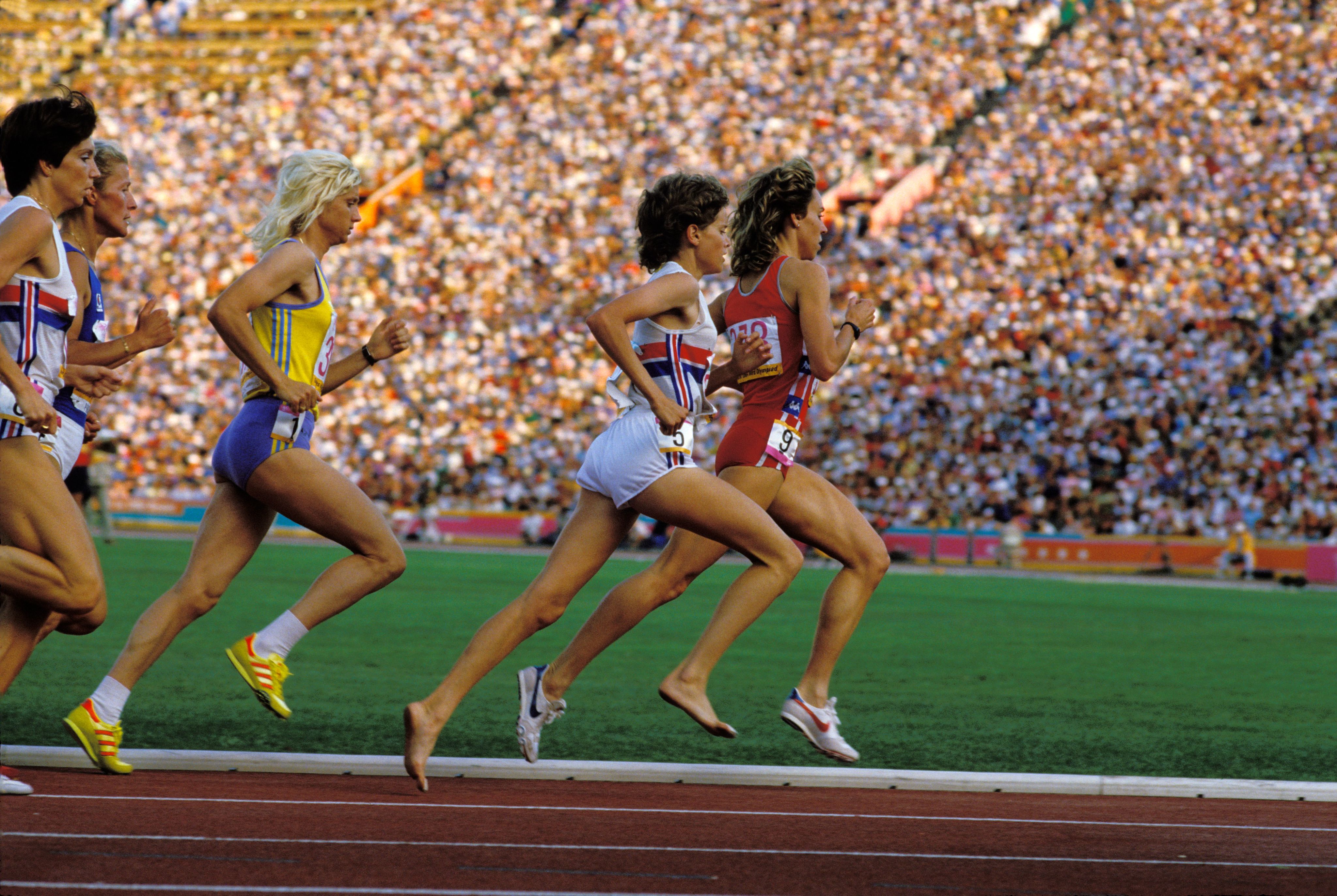
FRIDAY
Rosie Swale-Pope became the first woman to run 21,000 solo miles around the world. She set off on this expedition, which took five years to complete, from her home in Tenby, Wales in 2002 following her husband’s death. Yes, I’ve done the maths, and Swale-Pope would have been running around 80 miles a week during this five-year period – I really had no excuse not to get this challenge done.
But giving in to my tiredness on day five, a lie in was needed. Thinking of Swale-Pope I knew I had to run at some point, so I scheduled my first afternoon run of the week – a post-uni plod around Cardiff Bay. To my delight, my friend Ashley even offered to join me, and I was glad of the company to pull me through this run. We both decided a shorter distance (4 miles) and a reward of coffee and toasties was on the cards – it was Friday after all.
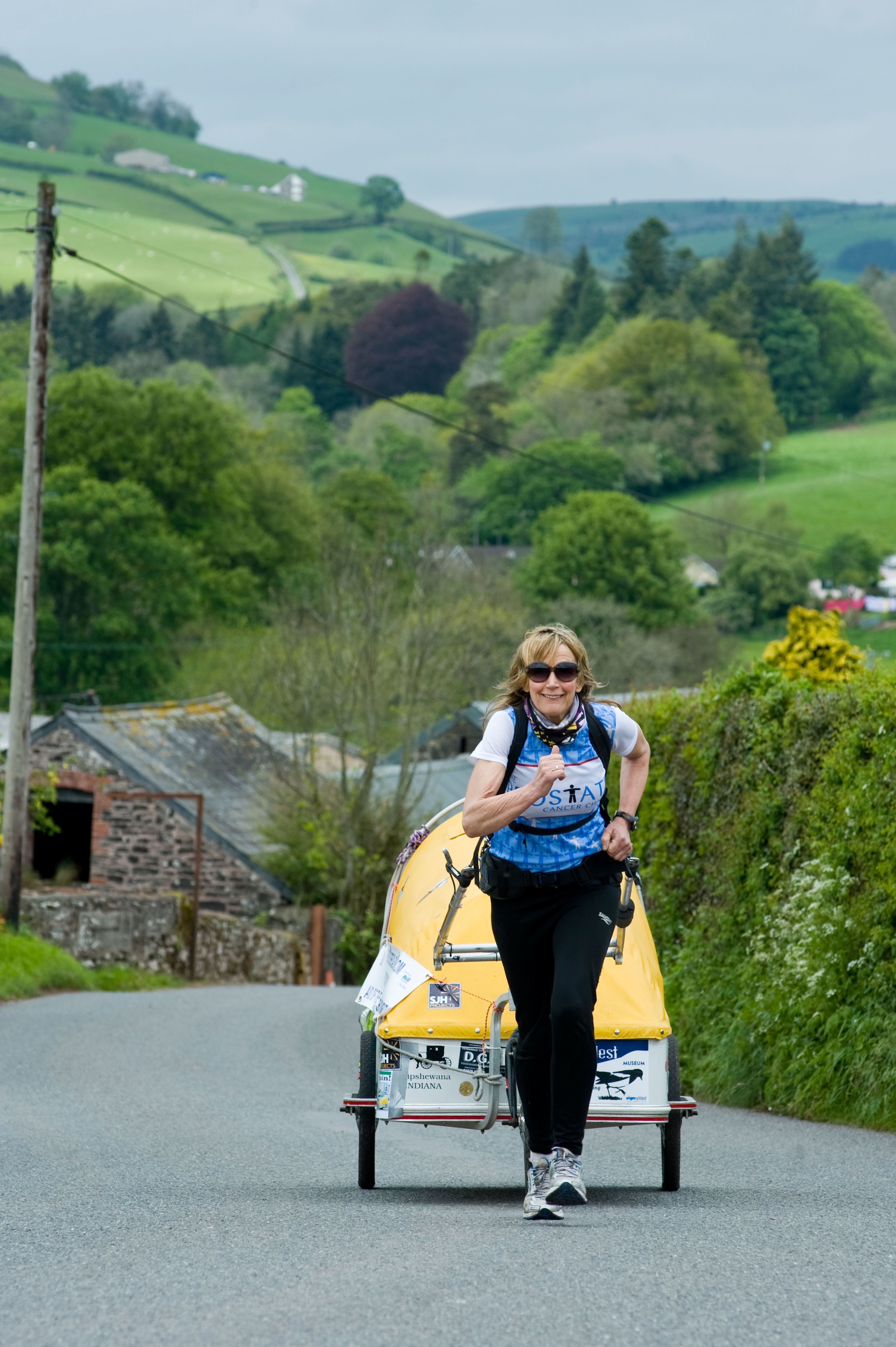
SATURDAY
Inspired again by the accomplishments of women in running’s past, today I dedicated my run to Alysia Montano (formally Alysia Johnson), the pregnant runner. Montano made jaws drop and empowered the female body when she ran the 800-metre race at the 2014 USATF Championships while eight months pregnant.
I had miles to make up after falling short on Friday. So, fuelled by a peanut butter and banana stuffed croissant, I set off on what I knew was going to be a tough eight-mile run. My legs felt heavy most of the way. By the final two miles they were lead. That said, I always enjoy an early morning weekend run as the streets are emptied of rushing commuters and feel pleasantly calm. I had a contrast therapy spa session – which involves alternating between a cold plunge pod and sauna and is said to improve athletic recovery – booked for later that day, carrying me through this long run.
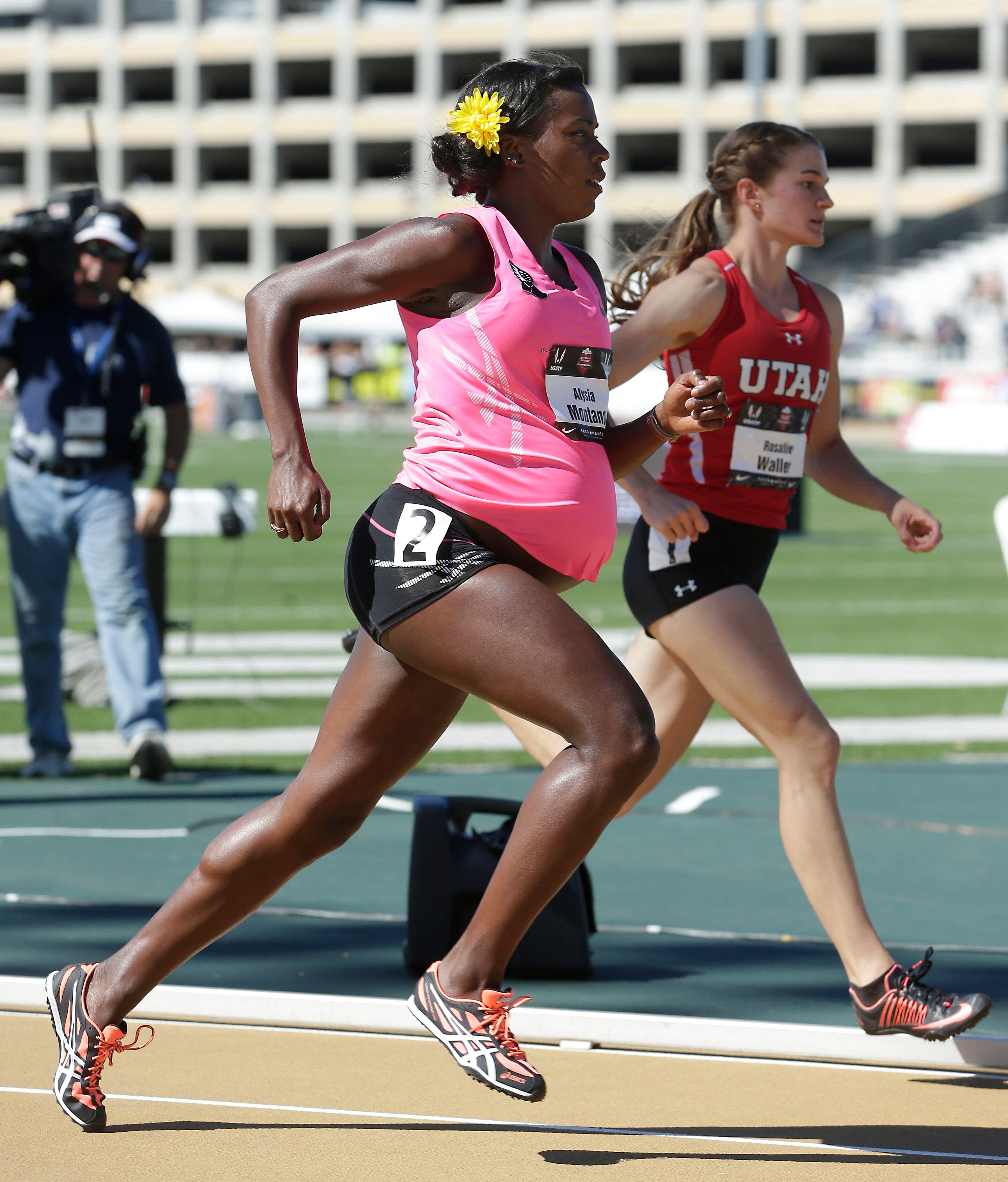
SUNDAY
Today I thought back to a podcast episode that has always stuck in my mind: Women’s Health Going for Goal with Ella Dove. I remember being amazed by Dove’s story when I first heard it and I couldn’t think of anyone more deserving to dedicate my final run of the week to. Dove is a journalist and author who lost her lower right leg in a freak accident in 2015. Letting nothing stand in her way, she now runs on her blade.
UK women are over twice as likely as the global average to feel unsafe on a run.
My final run of the week had to be my favourite route from my house. I spoke to a friend the other day about running and she said: “I ran 15k the other night. You know when it is just one of those nice ones?” and that was exactly what this afternoon run was (surprisingly after the intense week, but thanks no doubt to the previous night’s contrast therapy), a nice one. I felt the benefit in my fitness levels after a week of intense training. I ran the fastest I had all week and actually felt like I could have gone on past the 6.2 miles I set out to. But, challenge completed, I wasted no time in heading to the pub to refuel.
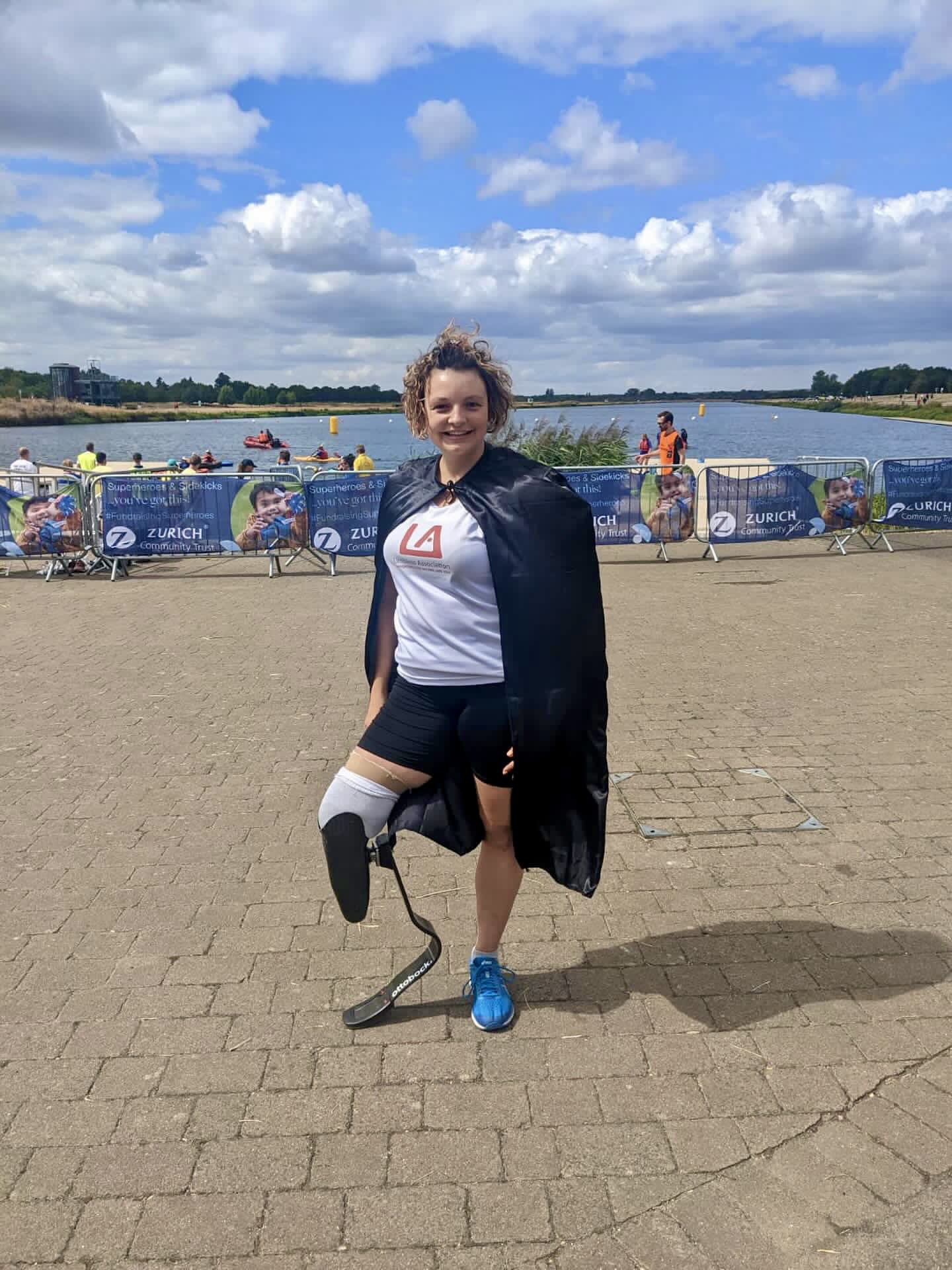
The takeaway
At the end of this running-intense week, one of my favourite quotes from Nelson Mandela came to mind: “It always seems impossible until it is done.” At the start of the week I was apprehensive as to whether I would cover the 43 miles. Anything could have cropped up – a missed alarm, an injury or simply a lack of motivation. But thinking of the lengths women in the past went to to be able to run, what a privilege it is to be able to run and the thought of that invincible post-run feeling got me out there to complete the challenge I had set out to.
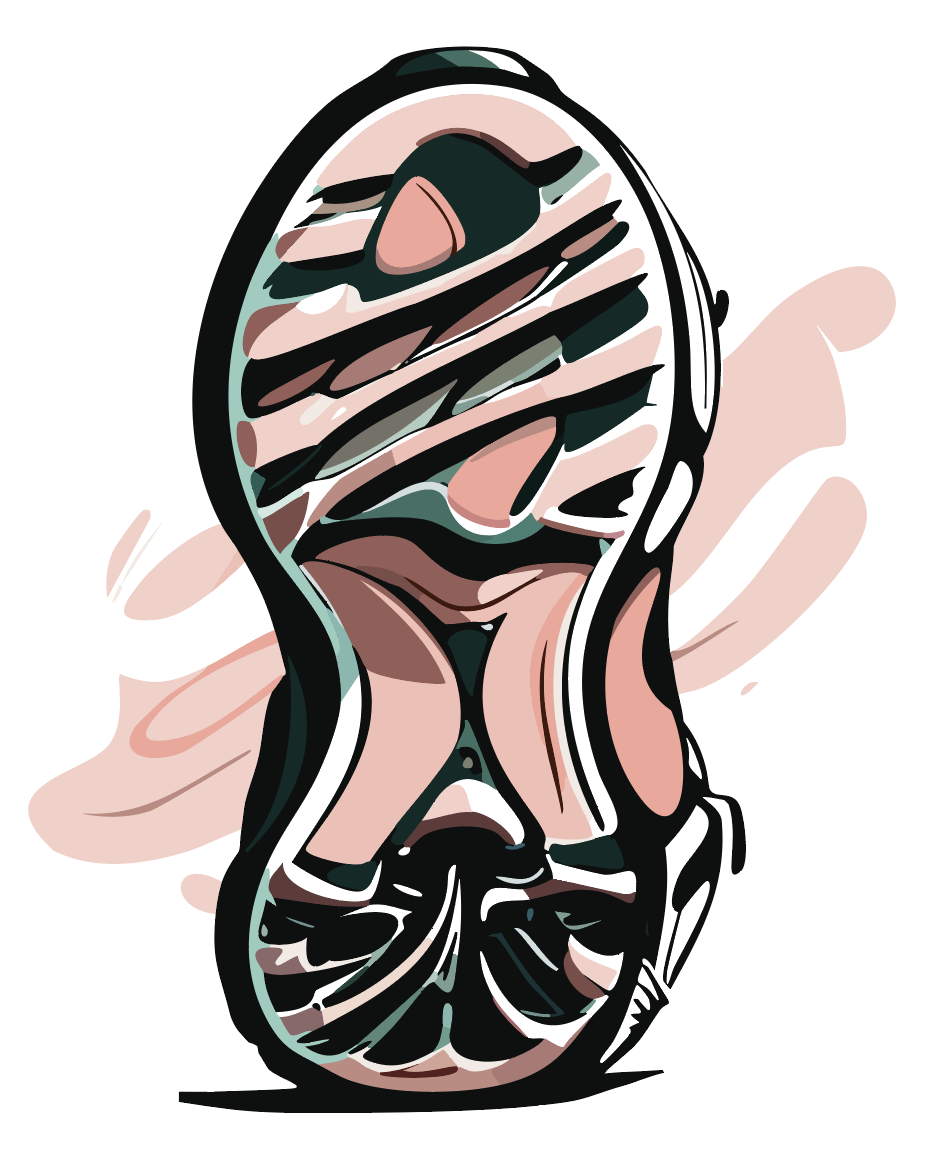
Lace up, girls
“I’ve noticed running has a really positive impact on my mental health.” – Lowri Lewis, 23, Cardiff
“Running allows me to be fully present in the moment, concentrating on my body and my breathing. For me, running is like taking a break for myself (aka my form of me time), where it’s just me, nature and my music.” – Evelyn Dom, 28, London
“I run for the feeling I get afterwards and how it feels to push yourself to do something you never believed you could do.” – Emma Boyle, 23, Edinburgh
“The main benefit I get from running is the satisfaction when I’m done. As a new runner, it feels so rewarding when I am able to run for either a longer time or distance and shows that hard work is paying off.” – Sophia Crothall, 22, Brighton
“Running keeps me fit, provides goals (that are attainable through consistency and hard work) and a certain amount of escapism from life. Going out on a long run when I’m mentally not feeling my best is almost as good as going to a therapy session. I also love the social aspect – I’ve been attending a run club since July and it gives me something to do and forces me out of my comfort zone every Saturday morning. I can turn up feeling all mopey and introverted but, by the end, I’ve met and spoken to loads of new people.” – Megan Geall, 23, London
“For me my main sport is lacrosse so a large part of why I run is to increase fitness levels and ensure I’m playing at my best during lacrosse matches. However I do it because I love the feeling of runner’s high, especially when the weather and scenery is beautiful.” – Anna Boyne, 21, Chester
“As a full-time working mum-of-five, the main benefit I get from running is escapism. It provides ‘me time’ where my mind wanders free, and I can clear my head. I have run five marathons. They were all different experiences – from the hottest London Marathon to date in 2018 to a baltic Chicago Marathon in 2019 – and I am very proud that I have those achievements under my belt.” – Claire Davies, 47, Swansea

